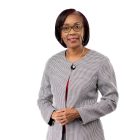Not being financially literate can be costly, Rose Miller, grants manager at the JN Foundation and head of the JN BeWi$e financial empowerment programme, says.
She noted that while there was no available data about the cost of financial illiteracy in Jamaica, information from the National Financial Inclusion Strategy (2016-2020) said financial literacy was low; and many Jamaicans do not understand some basic principles to better manage their personal finance.
In 2012, a demand-side financial capability survey was implemented by the Financial Services Commission (FSC) in partnership with the Organisation of Economic Co-operation and Development (OECD). That survey revealed that while the level of financial literacy among Jamaicans is comparable to persons in other countries in most areas, there is room for significant improvement.
For example: in basic financial knowledge, in terms of the time value of money; identifying and calculating the impact of interest compounding on savings; and behaviours, such as short-term money management.
Miller emphasised that “being financially illiterate can be expensive, because not only will you not see opportunities, but others who do will not hesitate to take advantage of your ignorance.”
She added that poor money management leads financially illiterate persons to pay exorbitant interest fees to “payday lenders” with high interest rates.
FINANCIAL BIND
That was the case of Gary Gregory (name changed on request), a communication specialist who found himself in a financial bind and needed a quick loan to address an emergency.
“It was the beginning of my nightmare,” Gregory lamented. “I ended up paying three times what I borrowed because the interest rate was ridiculous. I wished that I had read the fine print prior to entering into such a loan agreement.”
However, Tanya McKenzie (name changed on request), who was more exposed and financially literate, was able to save thousands of dollars when she decided to purchase a refrigerator she needed with her credit card, rather than taking it out on hire purchase.
“I would have paid triple the cost if I went the hire purchase route, instead of using my credit card to make the purchase,” she informed. “It took me two months to pay off my credit card, as opposed to 18 to 24 months, had I opted for hire purchase.”
Miller commended McKenzie for her prudent financial decision, pointing out that this was an instance of someone using their credit card wisely.
She advised, “That access to credit cards represent funds loaned to you by a creditor to make purchases and pay the bill at a later date. You can avoid paying interest and racking up a debt, which you will later struggle to repay, by paying your bill in full, on time, all the time.”
Miller also explained that it was important to select the right credit card, one which is suitable for your needs; in addition, one should read and fully understand the terms of the agreement.
“Utilising a credit card helps you save your money and use funds loaned to you; it is also a good tool in cases of emergency,” she added.
However, Miller noted that being financially literate takes some effort. She said each person should seek to improve their knowledge about financial matters, such as: investing and the various options available, estate planning, how credit cards work, credit scores, saving for the future, real estate, insurance and planning for retirement, among others. “This area is as wide as the ocean,” she quipped.
“Do not attempt to understand all of these topics at one time,” she added. “Rather, tackle one topic at a time and be committed to continuous learning. Start with the subject you are most interested in learning about; and, then move on to another, and another, and gradually build a solid foundation of financial know-how.”
Some other practical ways to improve financial literacy, she stated, would be to take a financial literacy class, which could be a short course about how to manage your finances, watch videos and access many other financial resources online.
Miller informed that today, the media is also a great source of information to improve one’s financial IQ. “Persons can learn effective money management strategies from local radio and television programmes; through print media; and online, via financial websites.”
See the original article here!




